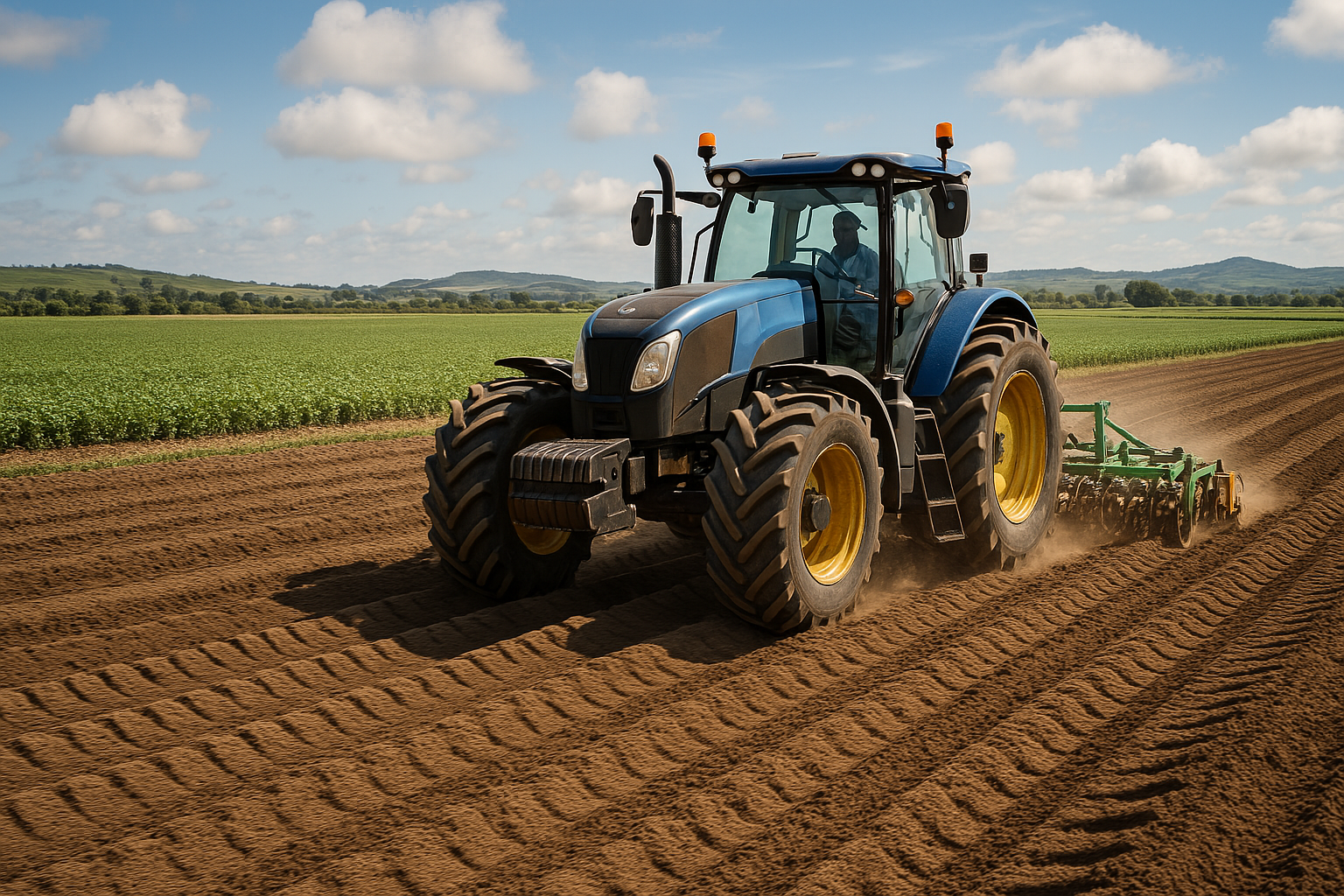Rwanda's Economic Resilience Drives Strong Growth, Agricultural Modernization Key to Future
Agriculture remains the backbone of Rwanda’s economy, employing nearly 40% of the workforce and contributing 27% to the nation's GDP.

Rwanda's economy has demonstrated remarkable resilience, achieving a real GDP growth of 8.9% in 2024, surpassing the previous year's growth of 8.2%. This robust performance, highlighted in the latest edition of the Rwanda Economic Update (REU) released by the World Bank, reflects the country's ability to navigate global economic uncertainties. The growth was largely driven by a surge in private consumption, substantial investment, and solid performances across the services, industry, and agriculture sectors, signaling a balanced and sustainable economic expansion.
One of the most significant achievements highlighted in the REU is the creation of over half a million new jobs, a reflection of the country's ongoing recovery and structural transformation. Employment growth has been particularly strong, as the services sector regained its position as the largest employer in 2024, a position it had lost to the agriculture sector in recent years. This trend underscores the dynamic shifts within Rwanda's economy, as services, industry, and agriculture continue to evolve in tandem.
Agriculture remains the backbone of Rwanda’s economy, employing nearly 40% of the workforce and contributing 27% to the nation's GDP. However, while the sector continues to face challenges, it has shown significant improvements over the past decade. Agricultural income has surged, reaching $419 million, thanks to diversification beyond traditional cash crops like coffee and tea. The country has increasingly turned to high-value crops such as vegetables, fruits, and other commodities. Despite this diversification, the agriculture sector still holds considerable untapped potential for higher growth and enhanced job creation.
Peace Aimee Niyibizi, World Bank Senior Country Economist for Rwanda, noted that there is still significant room for growth within the sector. She emphasized the need for increased investment in agricultural infrastructure, including irrigation systems, small-scale irrigation development, and agro-logistics. These improvements would enhance productivity, reduce post-harvest losses, and improve market access, which are essential for strengthening Rwanda's agricultural value chains.
One of the key findings of the REU is the importance of market-driven production systems. These systems would encourage greater investments in agriculture, leading to improved yields and efficiency while simultaneously creating more job opportunities along the agricultural value chains. However, the report also pointed out that despite agriculture's significant contribution to exports, trade remains vulnerable due to fluctuations in global commodity prices and limited regional market integration.
Agricultural exports account for nearly 48% of Rwanda's total goods export revenues, highlighting the sector's critical role in driving foreign exchange earnings. Yet, the report stressed the importance of improving regional market linkages to mitigate vulnerabilities from price fluctuations and enhance Rwanda's competitiveness on the global stage.
Sahr Kpundeh, World Bank Country Manager for Rwanda, reinforced the critical importance of agriculture in achieving the country's long-term economic and developmental goals. He emphasized that modernizing agricultural production systems and investing in value-added processing would significantly contribute to Rwanda’s ongoing agricultural transformation.
In its recommendations, the REU advocates for strengthening seed systems, introducing regulatory reforms, and fostering private sector investment to address bottlenecks in the sector. Aligning policies with regional trade opportunities, particularly within the East African Community (EAC) and the African Continental Free Trade Area (AfCFTA), would further support the country’s goal of building a resilient, competitive, and sustainable agri-food sector.
Looking ahead, the World Bank stresses the need for greater focus on agricultural modernization to enhance productivity and sustainability. As the country seeks to transform its agricultural landscape, continued investment in infrastructure, innovation, and human capital will be essential to unlocking new growth opportunities.
Rwanda’s ability to adapt and modernize its agricultural sector while ensuring inclusive growth through job creation and investment is a testament to its ongoing economic transformation. As the country continues its journey toward economic resilience, the agriculture sector will remain a pivotal driver of Rwanda's future prosperity and development.
- READ MORE ON:
- Sahr Kpundeh
- World Bank
- Rwanda Economic Update
- Agriculture










